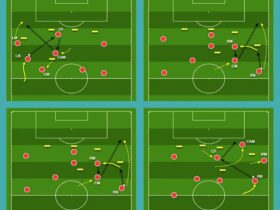Debt collection is a challenging process in any country, but it comes with specific legal frameworks and procedures in Colombia. For creditors seeking to recover overdue payments, understanding the unique legal landscape is essential. This article provides an overview of effective strategies and key legal steps for debt collection in Colombia, helping individuals and businesses alike navigate this process with greater confidence and efficiency.
Understanding the Legal Framework for Debt Collection in Colombia
In Colombia, debt collection is primarily governed by the Colombian Civil Code and the Code of Civil Procedure. These laws outline the rights and responsibilities of creditors and debtors, including the actions creditors can take to enforce debt repayment. It’s important for creditors to follow these legal guidelines strictly, as non-compliance can result in delays, penalties, or even invalidation of the debt recovery process.
Steps to Debt Collection in Colombia
Debt collection in Colombia typically follows these steps:
- Negotiation and Initial Communication
The first step in debt collection is generally an attempt to reach an amicable agreement. Many creditors start with a formal demand letter, also known as a “cobro persuasivo” (persuasive collection). This letter should clearly state the debt amount, due date, and any late fees. It often encourages the debtor to settle the debt within a specified time frame, aiming to avoid litigation.
Direct negotiation is a preferred first approach, as it can save both parties time and legal expenses. If the debtor is unable to pay the full amount, creditors may also consider setting up a payment plan or partial payment agreement, which, when properly documented, can be legally enforceable.
- Legal Notice or Formal Demand
If negotiations fail, the next step is to send a formal legal notice to the debtor. This notice informs the debtor that legal action will be initiated if they do not settle the debt within a given period. In Colombia, this letter often serves as a final warning and must be well-drafted to meet legal standards. Including key details like the debt’s origin, amount due, and consequences of non-payment can strengthen the creditor’s position in any subsequent legal process.
- Judicial Collection Process
If the debtor still does not respond, the creditor may begin a formal judicial process. In Colombia, the judicial collection process for debt collection generally takes place in civil courts and can be divided into two main types: the “executive process” and the “ordinary process.”
- Executive Process (Proceso Ejecutivo): This process is applicable when there is a “título ejecutivo” (enforceable title), such as a promissory note, contract, or any other document signed by the debtor that clearly acknowledges the debt. The executive process is faster and more efficient than an ordinary process, as it assumes the debt’s legitimacy. If the court accepts the claim, it can issue an order to seize the debtor’s assets to settle the debt.
- Ordinary Process: If there is no enforceable title, the creditor may initiate an ordinary process, which requires the creditor to present evidence supporting the debt’s existence and validity. This process is generally longer and more complex, involving a full trial. The court will analyze all available evidence before deciding on the creditor’s right to recover the debt.
- Enforcement of Judgment
Once a court judgment is obtained, the creditor can begin the enforcement phase. If the debtor still does not comply with the court’s ruling, the creditor can request the seizure and auctioning of the debtor’s assets. Colombian law allows for various enforcement measures, including wage garnishment, seizure of bank accounts, and even placing liens on real property. The effectiveness of enforcement largely depends on the debtor’s assets and their accessibility.
- Alternative Dispute Resolution (ADR)
In Colombia, creditors may also consider alternative dispute resolution (ADR) methods such as mediation, arbitration, or conciliation. ADR can be a cost-effective way to resolve debt disputes, especially for large or complex debts. In some cases, ADR is even mandated by contract, so creditors should review any existing agreements for ADR clauses before proceeding with litigation.
Key Considerations for Debt Collection in Colombia
- Legal Documentation: Maintaining accurate and thorough documentation is crucial. Contracts, payment receipts, emails, and demand letters serve as evidence in court and strengthen a creditor’s case.
- Debtor’s Assets: Before initiating a judicial process, it is wise to assess the debtor’s financial status and asset availability. If the debtor has limited or no assets, collection through judicial enforcement may prove ineffective.
- Professional Assistance: Navigating the Colombian legal system can be complex, especially for foreign creditors. Engaging a local attorney specializing in debt collection in Colombia can help streamline the process, ensuring compliance with local laws and improving the chances of successful debt recovery.
- Statute of Limitations: Colombian law imposes time limits on debt recovery. Generally, the statute of limitations for debt collection is five years, after which creditors may lose the right to collect. Acting promptly and within these limits is essential to preserve one’s legal rights.
Best Practices for Debt Collection in Colombia
- Be Persistent but Respectful: Debt collection requires persistence, but it’s also essential to maintain a respectful approach. Aggressive or harassing tactics can lead to legal repercussions and damage relationships.
- Adapt to the Colombian Business Culture: In Colombia, business culture emphasizes trust and personal relationships. Taking the time to communicate clearly and professionally can facilitate smoother negotiations and better outcomes.
- Explore Local Debt Collection Agencies: For foreign creditors, engaging a Colombian debt collection agency with experience in local practices can be beneficial. These agencies typically handle the process on behalf of the creditor, from negotiation through legal proceedings, charging a fee or commission for their services.
Conclusion
Debt collection in Colombia requires an understanding of the country’s legal processes, cultural nuances, and enforcement mechanisms. By approaching the process systematically, starting with negotiation and moving through formal legal steps if necessary, creditors can improve their chances of successful debt recovery. Legal expertise and careful documentation play significant roles, and seeking professional assistance when needed can make all the difference.
Whether you are a domestic creditor or an international business, following the established procedures and leveraging available resources can help ensure that the debt collection process in Colombia proceeds as smoothly as possible.
More information by this link: https://www.grandliga.com/debt-сollection-in-colombia/








Leave a Reply